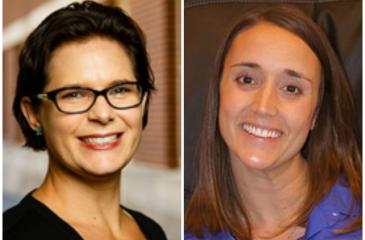Many academics see tremendous value in engaging groups outside the University in their research, but face challenges trying to make that a reality.
Two University of Minnesota researchers cleared these hurdles with support from the University’s Clinical and Translational Science Institute (CTSI), generating findings that would influence local and national health policy.
“Our CTSI-supported research project didn’t just inform public policy; it led directly to the creation of new legislation,” says Rebecca Shlafer, PhD, MPH, an Assistant Professor with the Medical School’s Department of Pediatrics, referring to a bill that helps care for pregnant, incarcerated women and their babies.
Dr. Shlafer has engaged a wide range of CTSI offerings, from its career development programs for junior investigators to its grants stimulating community-engaged research. This ultimately advanced her career and her research alike.
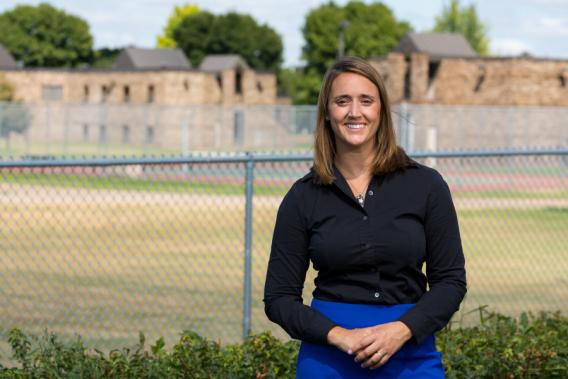
Lifting a new research program off the ground
Dr. Shlafer’s road to policy change began in 2011, when she teamed up with Everyday Miracles’ Erica Gerrity, MSW, to apply for – and ultimately receive – a $23,770 CTSI grant that supports collaborations between University researchers and community entities such as nonprofits, physicians, and clinics.
At the time, the local nonprofit Everyday Miracles had just begun providing doula support to pregnant prison inmates. The grant marked Dr. Shlafer and Gerrity’s first formal collaboration.
The team used the funds to continue implementing the program and evaluate how the doulas – nonmedical companions who assist women before, during, and after childbirth – impacted health outcomes, collecting evidence that would ultimately drive policy change.
In addition to making an impact in the legislative world, CTSI support gave a big boost to Dr. Shlafer’s burgeoning career as a researcher.
“CTSI support enabled me to begin my own program of research as a post-doc, and helped me land a faculty position at the University,” says Dr. Shlafer. “Because CTSI supported the earliest stages of my research career, I was able to hit the ground running and actually demonstrate that I could be a successful researcher.”
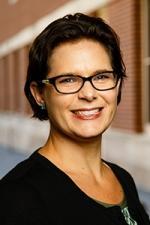
Supporting research that engages the community
Another University researcher – School of Public Health Professor Katy Kozhimannil, PhD – had been partnering with Everyday Miracles on another endeavor for years, but they lacked the funding to realize their shared vision.
The same CTSI Community Health Collaborative Grants program gave Dr. Kozhimannil and collaborators Mary Williams, LPN, and Debby Prudhomme the support they needed to evaluate the effectiveness of a new Minnesota Medicaid policy that gives beneficiaries access to doula services, and would later influence policymakers nationwide.
“CTSI support formalized our University-community partnership, which was critical to our ability to make a nationwide impact with our work,” says Dr. Kozhimannil.
Grants for both Drs. Kozhimannil and Shlafer were provided through CTSI’s Office of Community Engagement to Advance Research and Community Health (CEARCH), which provides an infrastructure so University-community research teams can work together to address health issues in ways that are truly relevant to the community.
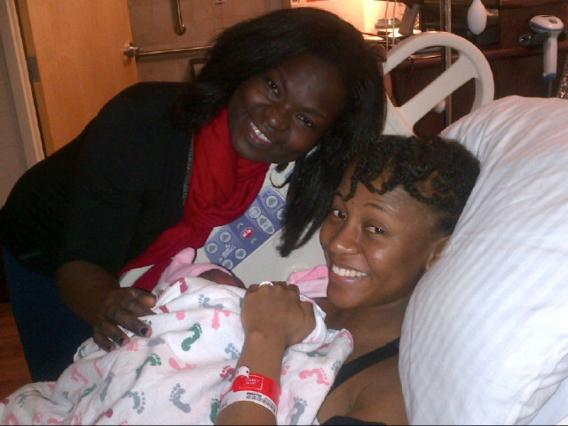
Building independent research careers
Shortly after receiving a community-engaged research grant from CTSI, Dr. Shlafer sought to grow her capabilities as an investigator, and joined a CTSI career development program.
Programs are designed to advance the research careers of junior investigators and the clinical and translational science workforce, and are part of CTSI’s broader Research Education, Training, and Career Development function (CTSI-Ed).
When Dr. Shlafer joined the Pre-K Career Development Program, she had just made the jump from post-doc to Assistant Professor. She was eager to hit the ground running and quickly become an independent researcher, meaning that she would be able to secure enough grant funding to support her salary and research endeavors, and establish a national reputation in her field.
To help researchers reach this point, CTSI’s faculty career development programs provide its scholars with a top-notch team of mentors, between $50,000-78,000 in research funds, protected time for research, and comprehensive career development support, including progress reviews, training on essential research skills, and ongoing guidance from CTSI team members even after scholars “graduate” from the program.
“Dr. Shlafer has accomplished a tremendous amount during her short time as a faculty member, due to her extraordinary talent and dedication as well as the continuous support of CTSI,” says Joseph Neglia, MD, MPH, Head of the Medical School’s Department of Pediatrics. “By partnering with CTSI, we can give our junior investigators the momentum they need to lift their careers off the ground and conduct research that can help people live healthier lives."
Growing a research program
Dr. Shlafer’s research capabilities grew so much in the Pre-K Program that she applied for and was accepted into CTSI’s more advanced KL2 Scholars Program. In addition to the perks Dr. Shlafer received through the Pre-K Program, the next-level program would also offer $100,000 in salary support annually and the assurance that 75 percent of her time would be protected exclusively for research pursuits.
“One of the biggest challenges for academic researchers is not having enough time to dedicate to conducting research and writing grants, which is fundamental to building a successful research career,” says Dr. Shlafer. “Having protected time through CTSI’s KL2 program allowed me to continue growing my research program at a pivotal point in my career.”
Scholar seminars and other training activities are held jointly with University scholars from other K award programs, including the Building Interdisciplinary Research Careers in Women’s Health (BIRCWH) K12, which supported Dr. Kozhimannil’s career development from 2011-2014.
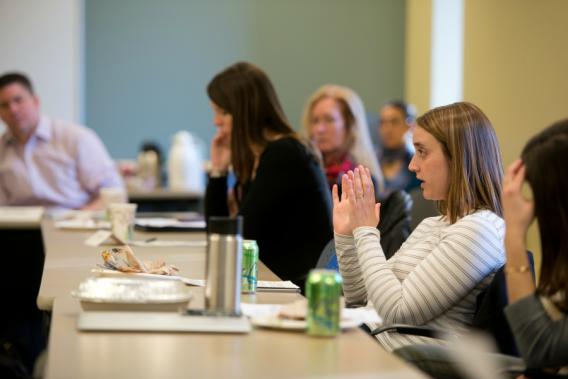
Expanding their network
Dr. Kozhimannil credits her peers and mentees from the joint career development programs with driving some of the biggest enhancements to her research through their feedback and new perspectives.
For example, Dr. Kozhimannil first developed a research partnership with Rachel Hardeman – a racial equity expert who would later become a collaborator, mentee, and School of Public Health Assistant Professor – through CTSI’s community of scholars.
Dr. Shlafer also benefited from the mentorship aspect of CTSI’s career development programming, saying:
“Because I’ve had the opportunity to be both a mentee and a mentor through CTSI, I’ve become better at identifying and approaching potential mentors, and can more effectively leverage their expertise.”
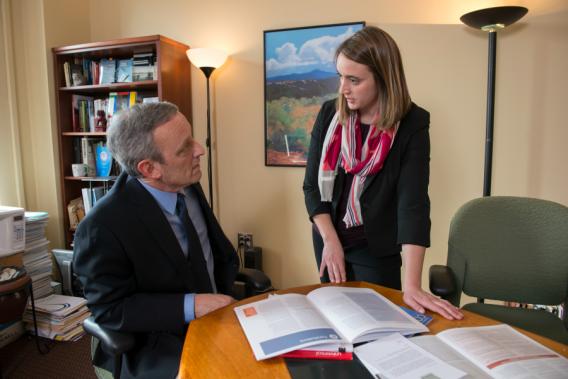
Building momentum
Because Dr. Shlafer received support from multiple CTSI programs, she was able to incrementally build upon her research projects and continue collecting evidence that would support policy change efforts.
"CTSI’s programs are designed to work together to empower investigators to improve human health through their research,” says Bruce Blazar, MD, Director of CTSI. “When researchers take advantage of CTSI’s wide range of offerings, they have the potential to advance their careers and their research alike."
When Dr. Shlafer evaluated the doula program for her first CTSI grant, women shared concerns about being unable to eat enough during their pregnancies, and not knowing what they should be eating in the first place. This would become the focus of her Pre-K project.
Her KL2 research project built upon that and asked the broader question of how many pregnant women and parents were going through the criminal justice system, a number unknown to the Minnesota Department of Corrections. It would also provide financial support for her program partner, so they could continue implementing the prison doula program and evaluating its effectiveness.
Driving policy change
Conversations with inmates and corrections officers clued Dr. Shlafer, Gerrity, and their team in on the startling fact that nothing was being done to systematically address the needs of pregnant inmates. For example, many jails weren't providing pregnancy tests or offering the community standard for prenatal care.
Efforts shifted to policy change, with Dr. Shlafer and Gerrity teaming up to help craft the legislation, testifying, working with advocates to find legislative sponsors, and educating legislators. They shined a light on the conditions for pregnant women, the needs uncovered through research and programming, and how legislation could fill those gaps.
Along the way, Dr. Shlafer drew from the skills she learned as a CTSI scholar, such as how to communicate effectively, engage with the media, write winning grant proposals, and build a national reputation.
Efforts snowballed, and led to Minnesota’s passage of the most comprehensive law in the country pertaining to the care and treatment of incarcerated pregnant women.
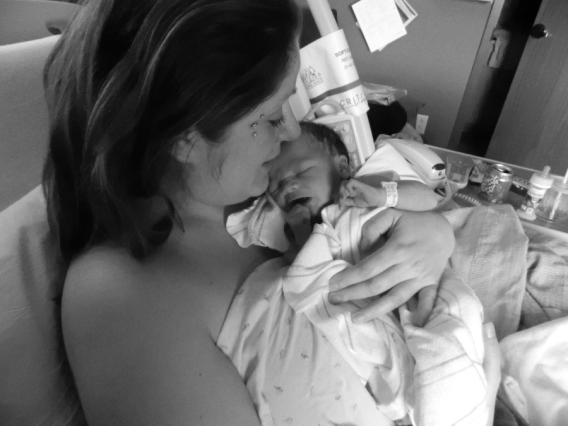
“I never expected my research to drive legislative change at such an early stage in my career, but CTSI’s support made that possible,” says Dr. Shlafer. “The law change is a successful example of how we were able to use knowledge gained through a community-University partnership, move the issue to the forefront, and make a difference in the health of moms and babies.”
Thanks to this legislation, Minnesota is viewed as a national leader on the issue. Dr. Shlafer and team have received calls from legislative aides from multiple states, conducted trainings with other Departments of Corrections, and created resources ranging from a Pregnancy Resource Guide for Incarcerated Mothers to a webinar about how to create a prison doula program.
Dr. Shlafer continues to team up with Erica Gerrity, a collaboration first formalized by the CTSI grant that has since developed into an ongoing, sustainable partnership. “We collaborate on pretty much everything together,” says Dr. Shlafer.
Moving forward, they’re working with the Alabama Department of Corrections to pursue collaborative grant opportunities that would enable them to examine the doula model’s implications through a multi-site intervention trial.
Addressing legislative challenges
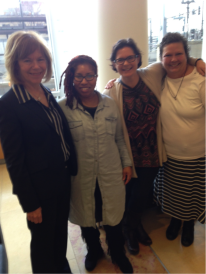
Like Dr. Shlafer, Dr. Kozhimannil’s work has shaped public policy around doula care. A manuscript she wrote while participating in CTSI career development programming would influence a 2013 Minnesota law that made Minnesota the second state in the nation to allow Medicaid coverage for doula services.
While a promising development, the actual implementation would prove to be more challenging due to issues surrounding reimbursements, licensing guidelines, consumer outreach, and other details about how the policy itself was structured.
That’s where CTSI’s community-engaged research grant came in. Support allowed Dr. Kozhimannil and team to evaluate the law’s first year of implementation, and broadly share findings in Minnesota and around the country.
In addition, the team used CTSI funds to train 12 women from diverse backgrounds to become doulas, helping to create opportunities for women who otherwise couldn’t afford it and expand the capacity of doulas of color in the Twin Cities.
“Dr. Kozhimannil has been incredibly successful at engaging the broader community and driving health policy changes,” says Timothy Beebe, PhD, Mayo Professor and Head of the School of Public Health’s Division of Health Policy and Management, Dr. Kozhimannil’s home division. “CTSI realizes the potential of community-engaged research, and has been instrumental in helping Dr. Kozhimannil and our other investigators advance their research and add value to the lives of Minnesotans.”
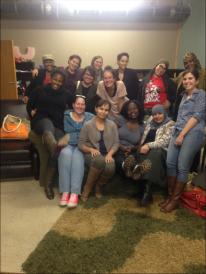
Because CTSI began supporting the project just as the law was going into effect, Dr. Kozhimannil and team could truly investigate the implementation process, identify barriers and challenges, and make recommendations to policymakers and community members to more fully realize the law’s potential.
Making a national impact
Findings from this study as well as related work about the benefits of providing Medicaid coverage – namely, improved birth outcomes and reduced costs – were widely shared in mainstream media and academic journals alike.
For example, Drs. Kozhimannil and Hardeman co-authored a blog post in Health Affairs – the online arm of the largest health policy journal in the country – that became one of the blog’s most-read posts in 2015.
Their work has been cited in other states’ efforts to propose similar legislation for Medicaid coverage of doula services, and such legislation has now been introduced in New Jersey. In addition, Dr. Kozhimannil and team have received inquiries from legislators, state program administrators, advocacy organizations, and doula groups in many states.
Today, Dr. Kozhimannil continues to collaborate with Dr. Hardeman – a former CTSI Translational Research Development Program scholar – and community-based doula groups. Together with midwife Rebecca Polston of Roots Community Birth Center, Drs. Kozhimannil and Hardeman have recently been selected to participate in Interdisciplinary Research Leaders, a new national Robert Wood Johnson Foundation program, administered by the School of Public Health. Their project will document the content and outcomes of culturally competent pregnancy and childbirth care to improve racial equity in maternal and child health.
“Our work – and in turn, our national impact – would not have been possible without CTSI’s support,” says Dr. Kozhimannil. “Thanks to CTSI, we’ve been able to build momentum for our research to improve access to doula care for women across the country.”
